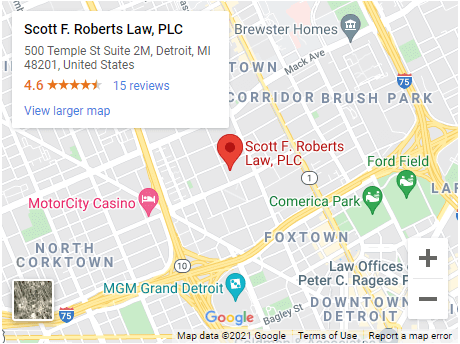Due to legal and regulatory changes in the industry, including the 2018 Farm Bill and recent changes in the implementation of Michigan’s 2014 Industrial Hemp Research Act, the information contained in this Article may no longer be accurate. Please contact an attorney before relying on any information contained in this Article. For more information on cultivating hemp, or the Hemp Pilot Program in Michigan, check out our recent article.
With all the recent buzz around recreational marijuana, you may have forgot about another key aspect of Proposal 1—the legalization of commercial hemp production. Though it hasn’t gotten much attention with all of the hoopla surrounding the state’s legalization of marijuana, big things are happening in the hemp industry, especially here in Michigan.
For those who aren’t familiar with its history and past uses, hemp is an incredibly versatile product that can be used to produce paper products, oils, linens, fabrics, mesh, rope, and plastic substitutes. Hemp is also considered a “superfood” by many and can be used to cost effectively produce CBD. It was previously grown throughout the U.S. due to its incredible versatility. However, after passage of the Marihuana Tax Act of 1937, commercial hemp production began a precipitous decline, with the Controlled Substances Act of 1970 being the final death knell. Nonetheless, hemp production is making a comeback here in the U.S., and as we will explain below, Michigan is poised to be on the forefront of the commercial hemp resurgence.
Current Legal Status of Hemp in Michigan
The Michigan Regulation and Taxation of Marihuana Act—also known simply as “proposal 1” or the RMLA—legalized the production of commercial hemp here in Michigan. However, due to certain legal technicalities that were not addressed in the ballot language, commercial hemp production would still be federally illegal unless its produced in conjunction with a state University under the Michigan Industrial Hemp Research Act.
There are three bills making it through the Michigan legislature that would fix this technicality as well as make clear that commercial hemp is not subject to the state’s marijuana laws. You may have read our previous article on hemp production, as it relates to the production of CBD products. In that article we briefly mentioned a bill that had been introduced in front of the house, HB 6330, which would not only change the name of the Industrial Hemp Research Act to the Industrial Hemp Research and Development Act, but would also update the definition of industrial hemp. The expanded definition would include all parts of the plant including derivatives, extracts, and cannabinoids.
HB 6330 was also handcuffed to two other proposed House Bills referenced in the above link. They are HB 6331 and 6380. HB 6331 focused on changing the definition of industrial hemp in Michigan’s Public Health Code, while HB 6380 would amend sections 102, 206, 502 and 505 of the Medical marihuana facilities licensing act.
If you are interested in the future of the industrial hemp industry, we have good news for you. All of the aforementioned House Bills have passed by Michigan’s state House of Representatives and have now moved to the State Senate for consideration. This article will detail what potential changes these bills could mean for not only Michigan CBD producers, but also what we expect to be the very lucrative hemp farming industry, an industry we expect to eventually be even larger than the recreational marijuana market here in Michigan.
HOUSE BILL 6330
House Bill 6330 as passed included some changes and amendments that were not included in the original House Bill that was introduced. The changes are subtle but important. First, the Bill as introduced included the creation of an Industrial Hemp Advisory Board. The Advisory Board, as proposed, included members of LARA, State Sheriff’s office, and President of Michigan Association of Chiefs of Police among many others. The removal of the Advisory Board at this stage places the power of the Industrial Hemp Research and Development Act solely with the Department of Agriculture and Rural Development. You know, the department that would know the most about farming and development procedures!
Second, the Bill as passed removed the requirement that applicants for a grower or processor-handler license, also submit with their application a “research plan”. This development could impact commercial hemp production here in Michigan. At first blush, it looks like a loosening of the belt on the restrictions surrounding industrial hemp. However, in other areas of the Bill, it still states that “A grower shall not grow, handle or store any industrial hemp for a purpose other than research under the act”. That, of course, begs the question what exactly constitutes “research purposes”, as a farmer could easily claim that they are “researching” the viability of commercial hemp production by planting and processing hemp. Here, we hope the State Senate includes additional language allowing for “pilot programs” authorized under the 2014 farm bill, which would clarify and expand the scope of commercial hemp production in Michigan.
Third, the Bill removed the requirement for a criminal background check for those that are applying for grower and processor-handler licenses, though the Bill does still contain language stating that “An applicant may be denied if they do not demonstrate a willingness to comply with the Department’s rules, instructions or laws”. Language like that could mean that the department will consider criminal history in approving and denying licenses, though its highly unlikely potential producers will be subject to the same level scrutiny are medical marijuana facility applicants.
Finally, added into the language of the Bill is the requirement that a potential hemp grower request the ability to sell industrial hemp to a licensed MMFLA processor as part of their license application, though this would not apply to sales to a non-MMFLA hemp processor. Formally, the Bill did not require an express request by the applicant. This requirement, if nothing else, helps in drawing a fine line between industrial hemp and medical marijuana.
HB 6331
This Bill was actually amended to be slightly shorter than when it was introduced. The change, although minor, could be very important going forward. The amended part of this bill now states: “Marihuana does not include industrial hemp”. Whereas, when introduced the bill read in part: “Marihuana does not include industrial hemp grown or cultivated, or both, for research purposes under the industrial hemp research act.
HB 6380
This Bill remained mostly the same. Most of the changes that happened were simply rearranging of the contents and a removal of most of the definitions included in the very beginning. However, the Bill did take a more direct approach to addressing what the goal is. Specifically, in lines 4-5 of the first page in bold face font, it states: “to allow certain licensees to process, test, or sell industrial hemp”. From a strictly legal perspective, this changes practically nothing, but it does make the Bill a little clearer for those who did not like reading between the lines of the Bill as it was introduced. This Bill still seems to contrast the stance taken by HB 6330 & HB 6331, where those Bills seem to distinguish hemp from marijuana. In contrast, this bill specifically addresses MMFLA licensees’ ability to buy, process, and sell industrial hemp. However it is not time for a collective sigh, because some very good things could be coming.
WHAT DOES THIS MEAN FOR CBD PRODUCERS AND HEMP FARMERS
Yes, we know this was the part you were waiting for!
Under the language that was amended in HB 6330 & HB 6331, it seems industrial hemp is experiencing a progressive push forward. Research and requirement plans being cut out of licensing requirements will help make the process more streamlined. Eliminating the need for an Advisory Board made up of LARA members also hints at less oversight, and red tape, from multiple state departments. Removal of applicant criminal background checks helps to expand the potential pool of applicants.
As hemp and CBD attorneys, these changes indicate to us a change is coming. While many of these changes seem very beneficial at this stage, they may be walked back when they get to Senate review. In the meantime, it is our opinion that these changes are indicative of an opening door in the arena of hemp and CBD production as well as regulation more similar to other commercial crops, as opposed to a scheduled narcotic. This could mean big things for Michigan CBD and hemp producers. Specifically, removing industrial hemp from the arena of marijuana regulation without adding the stipulations for research plans could lead to a more open and integrated market.
For those looking to become hemp farmers…deep breath…it could mean actually being able to grow hemp without being subject to red tape from multiple governmental agencies. The consolidation of regulatory power over hemp into Department of Agriculture could help hemp farmers actually, you know, just BE FARMERS! Also contained in this Bill as passed was the ability for anyone over the age of 18 to apply for a hemp grower or processor-hauler license. This is important because, when combined with the new definitions of industrial hemp, it creates an entirely legal market for hemp, and those that would process it without fear of the DEA busting down your door.
THE BOTTOM LINE
The future looks promising for industrial hemp in Michigan. Whether it will stay that way depends on what happens when these Bills come in front of the Senate. Michigan was one of the many states this election period that experienced a “blue wave” in pivotal leadership seats, and that could spell the end of needless and inane restrictions on the growing and cultivation of hemp and CBD in the state. The days of Bill Schuette and Rick Snyder placing needless restrictions on the sale and consumption of CBD should hopefully soon be a thing of the past.
It took roughly two weeks from when these bills were introduced to when they passed through the house. It has already been five weeks since they have passed, hopefully news should be coming fairly soon about the senate review, but that may be coming after the election musical chairs is over. In any case it should not be long before we have more concrete information on this issue. In the meantime, subscribe to our blog for the most up-to-date information on CBD and hemp related issues.
If you or anyone you know is interested hemp growing, cultivation, production, and processing please reach out to our firm at 248-234-4060 and set up a consultation with one of our knowledgeable and helpful hemp and CBD attorneys.




